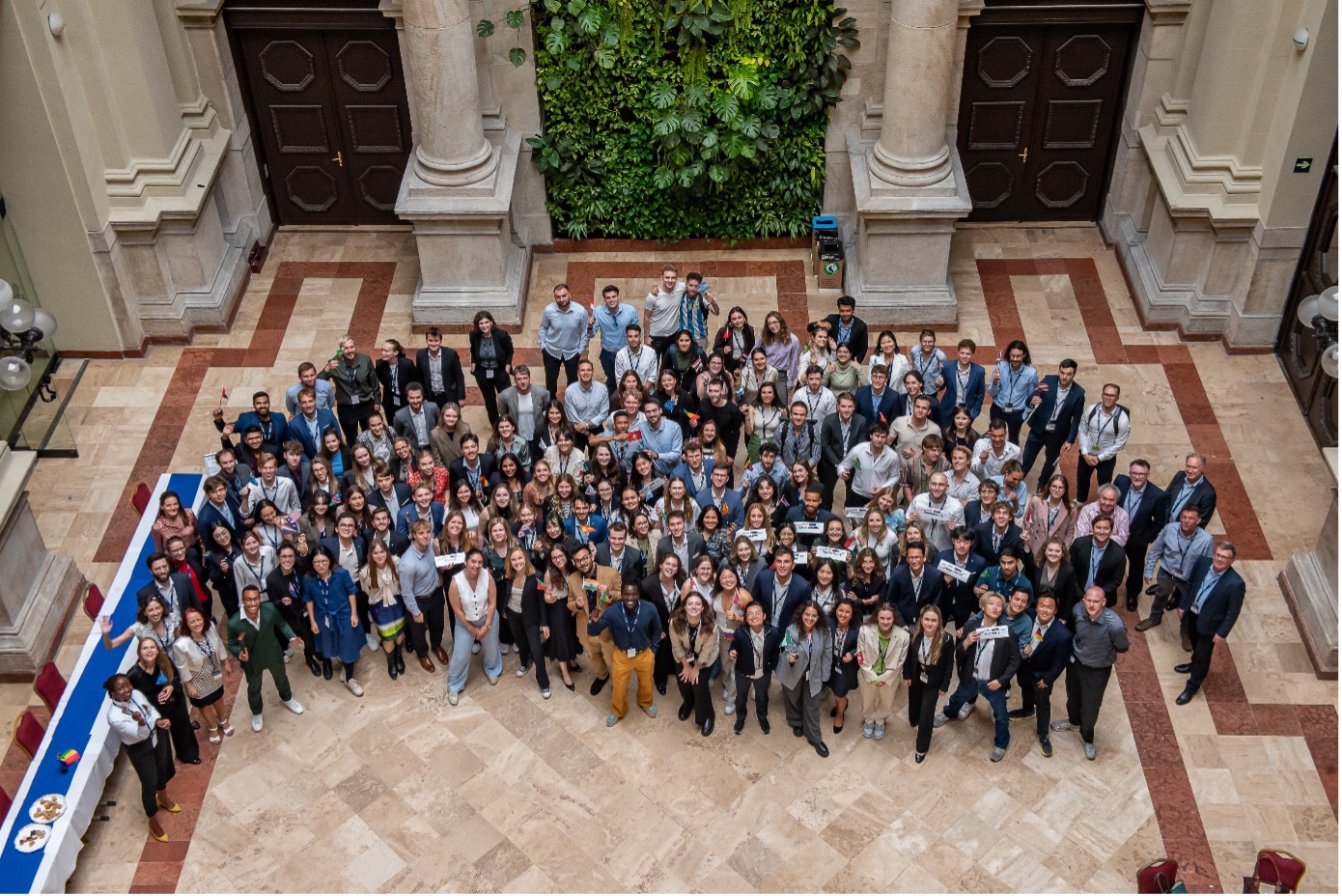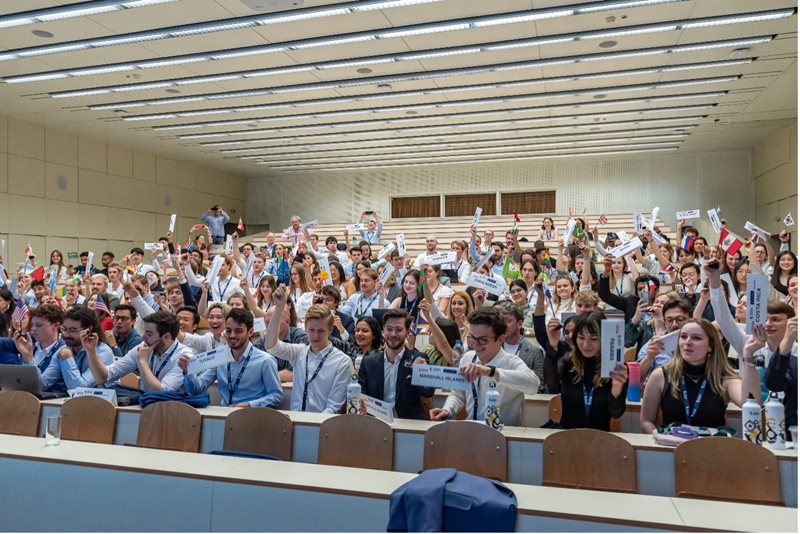CEMS Model UNFCCC climate conference simulation held at Corvinus with great success

Model UNFCCC CEMS Climate Strategy Roleplay is a unique, innovative course that provides the possibility for students to experience, as active participants, a complex, multilateral negotiation with far-reaching consequences for the future of the planet. During the semester, students prepare for the negotiation simulation by learning about climate change, the UNFCCC and the interests and positions of various countries.
The conference was opened by Dr. Ágnes Zsóka, Vice-rector for Academic Development, head of the “Business and Environment” faculty group at CEMS and professor responsible for the course at Corvinus, and Dr. Richárd Szántó, Program Director of CEMS. The participants were then addressed by Dr. Barbara Botos, Hungarian Ambassador-at-Large for Climate, who emphasized the huge stakes of the negotiations: the World only has a few years left to start drastically reducing greenhouse gas emissions if we are to limit climate change to 1,5ºC. Furthermore, this must be done while providing adequate financial assistance to developing countries to aid their transition to renewable energy sources and their preparation for the inevitable consequences of global warming.
During the two-day program, students negotiated the contents of the new climate treaty in plenary sessions, four working groups as well as informally during breaks, staying true to their role during the entire time. This sometimes meant having to argue against their own personal convictions to represent the interests of their country, for example as Saudi-Arabia or Australia to push for a delay in the phasing out of fossil fuels. As a result of intense negotiations and compromise-seeking stretching long into the night, by the end of the event, students were able to come to consensus on the text of the „Budapest Commitment”, which focused on the most important issues in relation climate change: the reduction of greenhouse-gas emissions (mitigation), preparing for the effects of climate change (adaptation), climate finance, market mechanisms to facilitate emission reductions, and questions about the status of climate refugees and loss and damage resulting from global warming. A quick analysis by professors of the course has shown that the outcome negotiated by the students would likely result in global warming of about 2ºC, exceeding the 1,5ºC limit considered acceptable by experts, but nevertheless more favourable than projections based on current policies which predict a temperature increase of 2,5-2,7ºC.
Alongside students from Corvinus, this year’s event was attended by participants from ESADE (Barcelona), Rotterdam School of Management, the University of Cologne, the University of St Gallen, Stockholm School of Economics, Norway School of Economics, University College Dublin and SGH Warsaw School of Economics. At Corvinus, the course is taught by Dr. Ágnes Zsóka and Dr. Anna Széchy.
